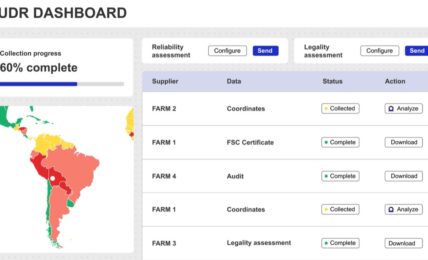Automotive manufacturer BMW Group announced today an expansion of its efforts to combat climate change with the launch of goals to significantly reduce vehicle emissions throughout the lifecycle, including initiatives to source sustainable materials and focus on circular economy considerations.
The automaker’s sustainability strategy comes as BMW prepares for the launch of its “Neue Klasse” of products in 2025, which the company says will be characterized a completely redefined IT and software architecture, a new generation of high-performance electric drivetrains and batteries, and a radically new approach to sustainability across the entire vehicle life cycle.
The strategy follows the announcement earlier this year by BMW of a goal to avoid more than 200 million tonnes of CO2 emissions by 2030, including reductions in the carbon footprint of its vehicles throughout their lifecycle, from raw material extraction to end-of-life recycling.
BMW Group stated that its new strategy is focused on drastically reducing CO2 per vehicle, including a 50% reduction in global CO2 use-phase emissions by 2030, and a more than 40% reduction in life cycle emissions.
The company’s sustainability plans will include major initiatives to increase the use of sustainable materials. BMW aims to promote the use of secondary materials, ramping the use of recycled and reusable materials to 50% by 2030. The company has also established a project with BASF and ALBA Group to increase the recycling of plastics from used cars.
BMW is also focusing on a ‘Circular Design’ concept, aiming to guarantee the economical dismantling capacity of vehicles, beginning with constructing vehicles in a manner that allows materials to be removed at the end of the vehicle’s service life.
BMW’s sustainability plans also include goals to help minimize the mining of primary materials that are coming into increasing demand as battery electric vehicle production grows, such as cobalt, nickel and aluminium, which are required for the vehicles’ high-voltage batteries.
Oliver Zipse, Chairman of the Board of Management of BMW AG, said:
“How companies are dealing with CO2 emissions has become a major factor when it comes to judging corporate action. The decisive factor in the fight against global warming is how strongly we can improve the carbon footprint of vehicles over their entire life span. This is why we are setting ourselves transparent and ambitious goals for the substantial reduction of CO2 emissions; these are validated by the Science Based Targets Initiative and will deliver an effective and measurable contribution. With the Neue Klasse we are significantly sharpening our commitment and also committing ourselves to a clear course for achieving the 1.5 degree target.”
The post BMW Targets Major Emissions Reduction, Circular Economy Goals with New Sustainability Initiatives appeared first on ESG Today.


